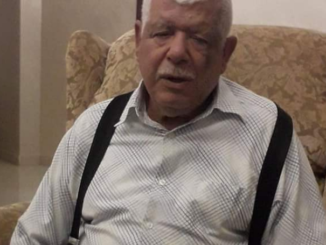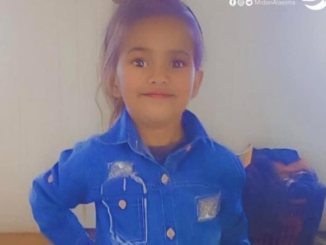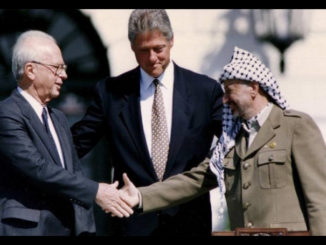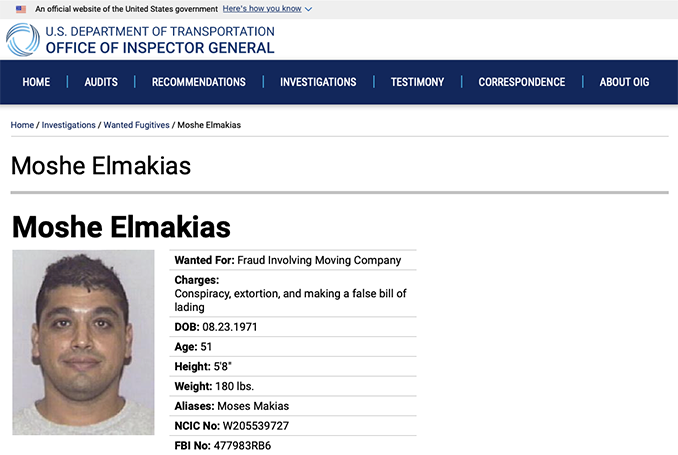
By David Sheen
Moshe Makias, an Israeli laser show operator, explosive salesman and a wanted fugitive in the US for extortion and related crimes, heard a confession by one of the murderers of Palestinian-American activist Alex Odeh, a witness to the same confession alleges.
Odeh, then regional director of the American-Arab Anti-Discrimination Committee, was killed by a bomb in October 1985 in Santa Ana, California by disciples of arch-racist American-Israeli Rabbi Meir Kahane, and in coordination with his local acolyte, Jewish Defense League chairman Irv Rubin. Active and retired FBI agents say Odeh was bombed to death by three JDL terrorists who followed Kahane to Israel: Robert Manning, Keith Israel Fuchs, and Baruch Ben Yosef.
“Moshe V”, a California convict (real name and details of his crimes redacted) who spent the 1990s committing a slew of crimes with and without Irv Rubin, says that the JDL leader introduced him to one of Alex Odeh’s killers in February 1990 at an LA-area Jewish deli, Katella Bakery. V says he heard the Kahanist terrorist-turned-lawyer Baruch Ben Yosef take credit for murdering Alex Odeh – and that Ben Yosef’s confession was also witnessed by another JDL associate present at the Katella meeting: wanted Israeli fugitive Moshe Makias.
Moshe Makias was one of over a dozen Israeli nationals that were charged in the mid-2000s with extortion and other related crimes, then fled the US, and now live openly in Israel, under the same names that they were charged under, with most operating social media accounts with profile pictures that are easily identifiable from the mug shots on their US government “Wanted” webpages.
Makias, his boss Simo Elbaz, and dozens of other US moving company employers and employees, mostly Israeli nationals, were charged in a 2003 FBI Miami sting operation dubbed Operation Stow Biz. The operation was so called because before delivering to their clients’ new homes their most precious possessions, the movers would stow the goods and hold them hostage, extorting fees that far exceeded their original quotes by hundreds of percent.
US law forbids moving companies from charging customers more than 110% of their original estimate.
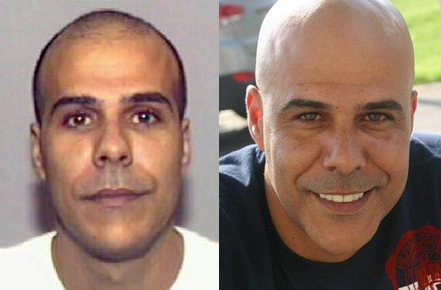

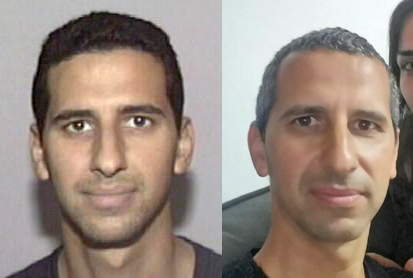
According to the jailed ex-JDL associate Moshe V, Makias was, like himself, also an associate of JDL chairman Irv Rubin for more than a decade. V says that Makias arrived with Baruch Ben Yosef to a February 1990 meeting at the Katella Bakery in Los Alamitos, California where Ben Yosef admitted to being Alex Odeh’s assassin.
“BBY [Baruch Ben Yosef] laughed out loud and confessed that he and [Robert] Manning were responsible,” for murdering Odeh, V says.
V hopes to share what he knows of Alex Odeh’s assassination and other crimes committed by the Kahanist syndicate, in exchange for resentencing for his own, unrelated crimes that he is currently incarcerated for. FBI agents have known of his claims for years, but have yet to interrogate V on the matter.
In response to a request for comment from the author, Ben Yosef denied the veracity of Moshe V’s allegations, and of all other reports by this author: “One big lie. Everything you write is a lie. Your entire existence is a lie. You think that by writing fake news, you will create some fake reality. You should get your head examined. You are seriously ill and again don’t bother me with your attempts to create fake news. It won’t work.”
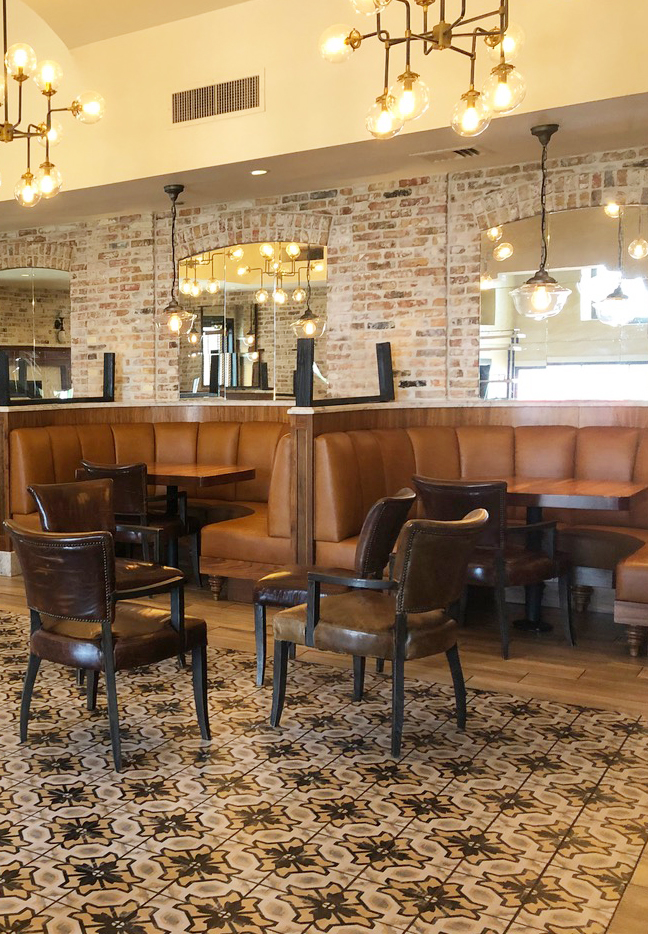
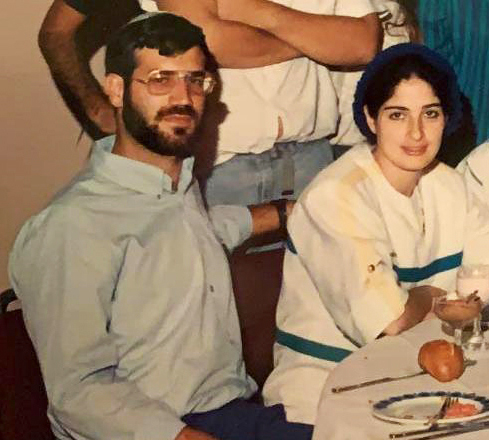
Joshua Faudem)
V says the 1990 meeting at the LA-area Jewish deli was the only time he ever met either Ben Yosef or Makias, but that he continued to have criminal relationships with both men in the years that followed.
V claims that he spoke with Ben Yosef on the phone in 1998 to coordinate the use of a drop box in the Jezreel Valley for funding Kahanist activities in Israel and the occupied Palestinian territories.
V also served as a back channel for sending sensitive information to JDL chairman Irv Rubin and his lieutenant, Earl Krugel. V says he regularly received faxes intended for them from the other assassin of Alex Odeh still at large, Keith Israel Fuchs, and from Moshe Makias, who then went by the name Moshe Elmakias.
“The shit that Elmakias was faxing over were things mostly for Earl. I agreed to be a silent factor in their communication loop, someone on the outside. They did have an address in Sherman Oaks, but it was ‘hot’ year round.”
V also received phone calls from Moshe Makias, and the two coordinated a cross-continental grand theft auto scam, after JDL chairman Rubin “figured out how to make brand new Honda Accords ‘disappear’ into thin air.”
“I made at least three trips to Jersey and brought back cars with forged New York State titles. They delivered a few other Accords to me as well in that period of time,” V says of Makias and his criminal associates. “He called me a couple times in 1998 about coming to pick up cars from New Jersey and bringing them to California – title forgeries, etc.”
V has not had any contact with Makias since V was arrested on unrelated charges in 2000.
But he recalls that the criminal associates of Irv Rubin he met for the first and only time at Katella Bakery in February 1990 – Baruch Ben Yosef and Moshe Makias – were not strangers to one another.
“Elmakias and BBY, from what I could sort of gather,” recalls V, “I could tell that they were really ‘chummy’ and got along pretty well as if they’d been friends a long time or had something serious in common.”
Although he was identified as a murder suspect by FBI agents at the scene of the Odeh’s assassination in 1985, Baruch Ben Yosef has never been charged for that crime. The publication last month of Moshe V’s testimony, asserting he heard Ben Yosef confess to Odeh’s murder at the Katella Deli in February 1990, could be the catalyst that allows US authorities to finally lay charges against the Kahanist killer, former officials who worked on the Odeh case believe.
V’s further assertion that Moshe Makias was also in attendance and heard the same confession from Ben Yosef buttresses V’s own testimony and compounds the evidence against Ben Yosef – if Makias would be willing to testify against him.
Whatever the relationship between the two, Makias’ social media record suggests that he shares Ben Yosef’s nationalist fervor, and would be unlikely to volunteer information that would impugn him, a fellow ultra-Zionist, for the murder of a Palestinian-American.
Yet there remains the possibility that Makias could feel compelled to share what he knows of Ben Yosef’s past activities and admissions, as a barter card with US authorities. Retired law enforcement officers who investigated the Odeh murder believe Makias might be willing trade what he knows about Ben Yosef, in exchange for reduced sentencing over the 2003 extortion charges he fled from.
“Obviously he doesn’t want to be in custody, he wants his freedom. ‘What else can you give us? I’ll talk to the court, and give you leniency on this case,’” says one of the ex-officers, who spoke off the record on condition of anonymity. “‘The case is still there, we can still hold this over you. What can you give us? Was there a meeting on the West Coast? Who was there?’”
It is far from clear, however, that Makias will be called to account for the extortion indictments he fled from – much less what he knows about Alex Odeh murder suspect-turned-lawyer Baruch Ben Yosef.
In my July article published in The Palestine Chronicle, I exposed that Makias and more than a dozen other Israeli nationals wanted in the US for extortion and other crimes are living openly in Israel, and that another fugitive charged in FBI Operation Stow Biz – Makias’ boss Simo Elbaz – is living openly with the same Miami-area lawyer-wife who told the court he had left her and went missing.
The US Department of Transportation Office of the Inspector General continues to host “Wanted” webpages for Makias, Elbaz, and the other Israeli fugitives, detailing their charges, but has not made any moves against the men. Asked about the Israeli fugitives, the OIG declined to comment on ongoing investigations.
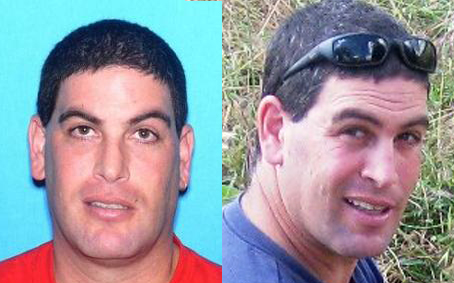
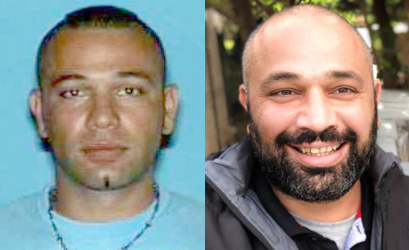
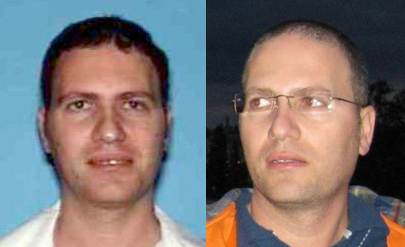
Nearly two decades have passed since Makias and Elbaz wreaked havoc in her life, but Gina Balderrama of Orlando, Florida, still recalls how she and her then-husband James suffered at their hands.
“They contacted my ex-husband a few hours after they left,” Gina recalls me. “They were switching from linear foot to weight. They demanded $10,000 in cash when they arrived” – three times their original quote.
“As soon as it’s on the truck, it’s like Dr. Jekyll and Mr. Hyde. It’s ‘F-you’ this, it’s ‘Screw you’ that,” recalled James. “You pay what I want or I will guarantee you’ll never see your stuff again.’ Period.”
Makias and Elbaz held hostage “everything I own, everything my family owned, stealing my memories,” bemoaned Balderrama. “They literally steal your life.”
Outraged at the extortion attempt, the Balderramas turned to the internet, then only a fraction of its current size and scope, hoping to find strength in numbers with additional victims of Makias and Elbaz, and of other moving companies with the same modus operandi.
“It wasn’t two or three hours,” recalls Gina. “People called us saying, ‘We have the same problem with the same people.’” Their now-defunct website started receiving a torrent of emails, over fifty a day, from other US citizens traumatized by similar experiences with moving companies.
The Balderramas first filed an official complaint with the Department of Transportation in mid-2001. It took a year to receive a response, and another year until Makias and Elbaz were arrested as part of Operation Stow Biz. “It would be ten to twelve years for us to be compensated if there was anything left, after the lawyers were paid,” Gina says she was told.
But the wheels of justice turned even slower for these extortion victims.
After the industry was deregulated in the mid-1990s, oversight for thousands of moving companies – and in the internet era, tens of thousands of moving brokers – was given over to a small department at the Department of Transportation’s Federal Motor Carrier Safety Administration. Charged with responding to thousands of consumer complaints a year, the Household Goods and Commercial Enforcement department budgeted just two inspectors on staff in the early 2000s. By the late 2010s, department payroll still only listed just over a dozen employees.
“The Program is severely challenged in responding to and/or investigating all complaints” of moving extortion, a 2017 DOT budget request read.
Moreover, even the few offenders that the DOT does manage to hold responsible are unlikely to pay any price; they often prefer to simply fold up shop and disappear, only to later reappear elsewhere. A 2005 Washington Post report noted that although the FMCSA had since 2002 issued nearly $1 million in fines for rules violations, “it readily admits that many times the agency doesn’t collect anything because the mover or broker simply vanishes.”
After Makias and Elbaz left their American wives, they were declared wanted fugitives, and legal proceedings against them were left in limbo.
Makias now lives comfortably with a new wife and child in Netanya, and a laser and fireworks company he runs out of an office in Herzliya, under the name Saar Laser.
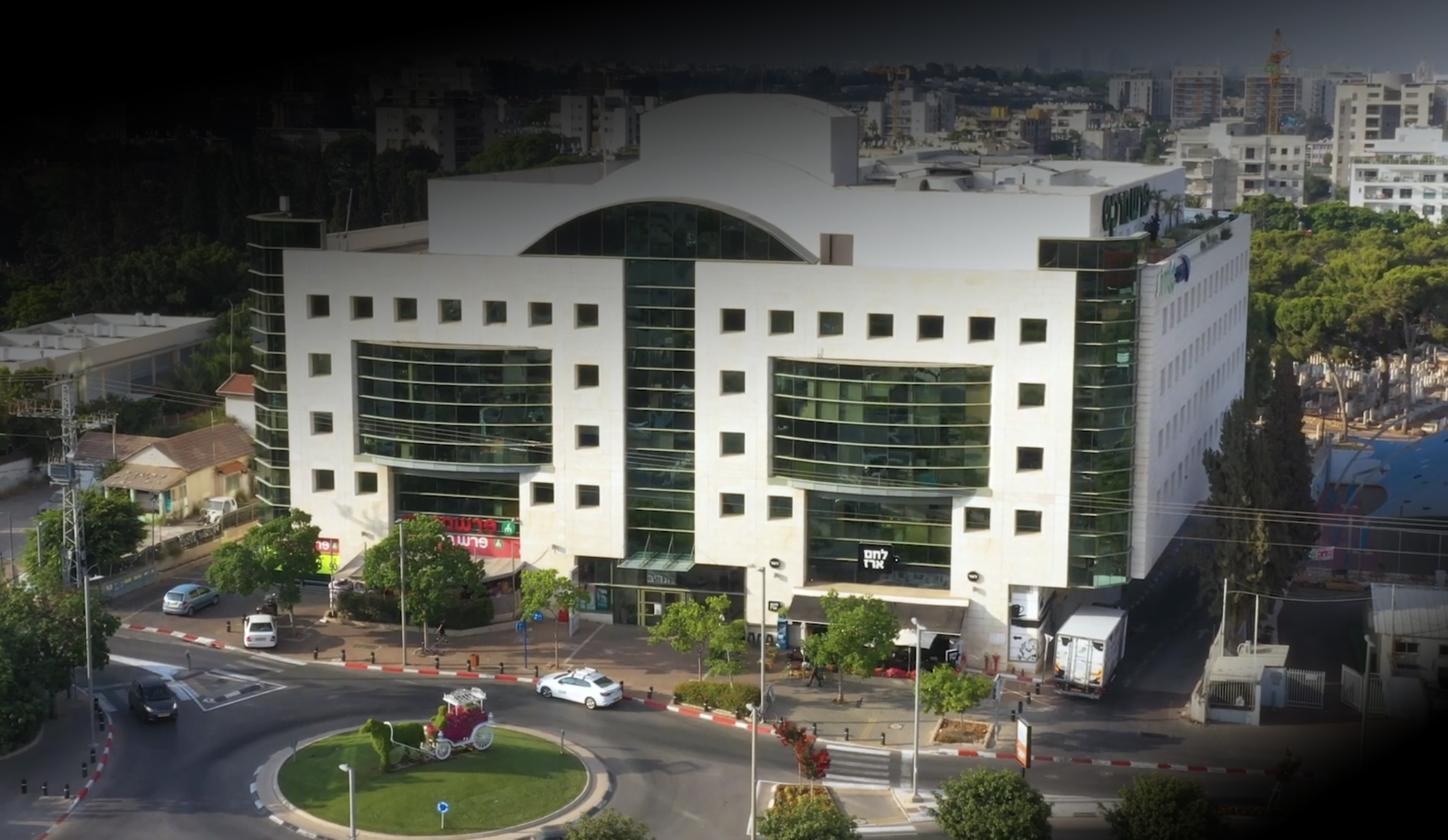
His former boss Simo Elbaz also lives a comfortable life – not in Israel, but in a posh neighborhood in southern Florida, with that same American wife, his co-conspirator Naomi Zimmerman, and their children.
His impunity and his chutzpah know few bounds. In 2020, the fugitive Elbaz paid to register a US trademark for a company called “Move Network,” describing the goods and services it provides: “Moving and relocation services, namely, planning and implementing moves of homes and offices.”
Elbaz has never repaid his extortion victims for their losses, however, or for their suffering. Neither has he paid any child support to the Israeli women who bore him babies before he married Naomi Zimmerman.
“He didn’t pay me,” says Ilanit Bokobza, who raised their son Sagi, born in late 1998, on her own. Bokobza laughs when she learns that Elbaz married his wife Naomi Zimmerman just three days before the FBI charged him with extortion and more than twenty other crimes. “I think she is a good player,” says Bokobka. “That’s what I think.”
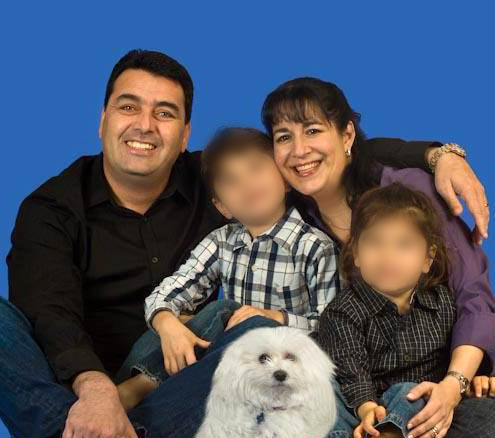
Zimmerman’s own subterfuge has not prevented her from continuing to practice law as a member of the Florida bar in good standing. She also maintains a Facebook friendship with Zion Rokah, one of the men indicted with her husband as part of Operation Stow Biz.
Between 2000 and 2002, Rokah’s Advanced Moving Systems and an associated firm, Transworld Moving were estimated to have extorted from customers over $1.2 million.
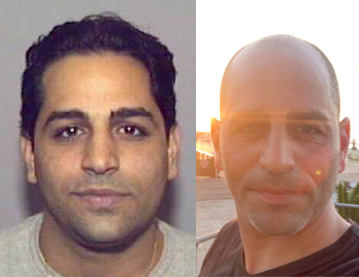
When first accused of extortion crimes in 2002, Zion Rokah told the Milwaukee Journal Sentinel that his firm was being targeted because of his ethnicity.
“It’s all against the Jews. The police are lying. They are corrupt,” said Rokah, insisting that he was being “victimized by stupid, small town, redneck police” who “hate Jews.”
Rokah later fled the US and found refuge in Israel, his place of birth.
Including Rokah, sixty of the seventy-four individuals charged in FBI Operation Stow Biz – over eighty percent of them – were Israeli nationals. The Department of Transportation’s Office of the Inspector General, who maintains “Wanted” webpages for Stow Biz suspects that fled the country, noted in the past this abundance of Israelis, but did not draw any conclusions from that correlation. “We haven’t established a particular reason for that,” OIG spokesperson David Barnes said.
In 2003, the Department of Transportation talked tough in taking credit for the arrests of Makias, Elbaz, Rokah and the other Stow Biz suspects, comparing them to a deadly disease. “We believe these prosecutions cut a significant cancer out of this industry,” said William Tompkins, the DOT’s special agent in charge.
The FBI’s Miami office, in charge of Operation Stow Biz, recognized that some suspects had fled to Israel, and committed to ensuring their return to see them stand trial on US soil. “We’ll be working with the Israeli government trying to get them extradited back into the United States,” said FBI Miami agent Judith Orihuela, though she also noted that no extradition requests had been submitted through the formal channels.
The Southern District of Florida’s Assistant US Attorney Carlos Castillo also refused to commit to formally filing any extradition requests.
Two decades later, a dozen-plus Israeli nationals charged in the US with extortion and other related crimes are still listed as wanted criminals on the website of the Department of Transportation. The fugitives are now known to be living openly in Israel, but US authorities have made no effort to bring the men to justice.
The Balderramas have been waiting for two decades to right a wrong done to them by two of these fugitives: Simo Elbaz and his henchman Moshe Makias. The revelation that Makias also committed crimes with Kahanists, and may have heard one of its leaders confess to murder, does not make it much likelier that he will be arrested anytime soon. The family of Alex Odeh – in California and in the West Bank – who have waited nearly twice as long for some semblance of justice, can attest: when incorrigible criminals flee to Israel, toothless US authorities are unlikely to demand their extradition.
Rather than seeking to deter Israelis from committing crimes on US soil, the Biden administration is currently laboring to make it easier for Israelis to enter the US visa-free. Last month, US Ambassador to Israel Tom Nides returned to publicly promoting this rule change, writing in an August 2 tweet, “Continuing to work hard to get #VisaWaiverProgram done to benefit both Israelis and Americans. Can’t slow down now.”
By press time, Moshe Makias, Simo Elbaz, Naomi Zimmerman and Zion Rokah had not responded to repeated requests for comment by the author.
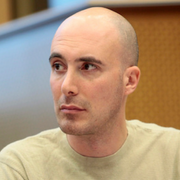
– David Sheen is a freelance investigative journalist reporting from Palestine for over a decade for dozens of local, regional and international journals, earning the solidarity of journalist unions and human rights groups at home and abroad, including the Palestinian Journalists Syndicate, the Rory Peck Trust and the Front Line Defenders. His website is davidsheen.com and he tweets from @davidsheen. He contributed this article to The Palestine Chronicle



